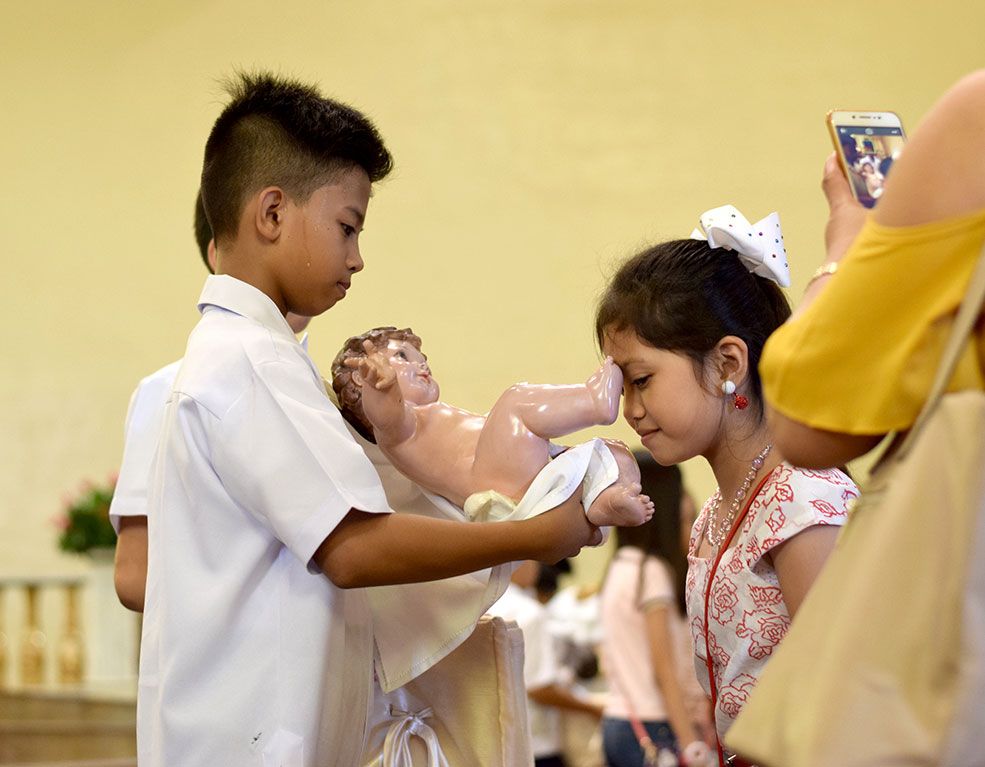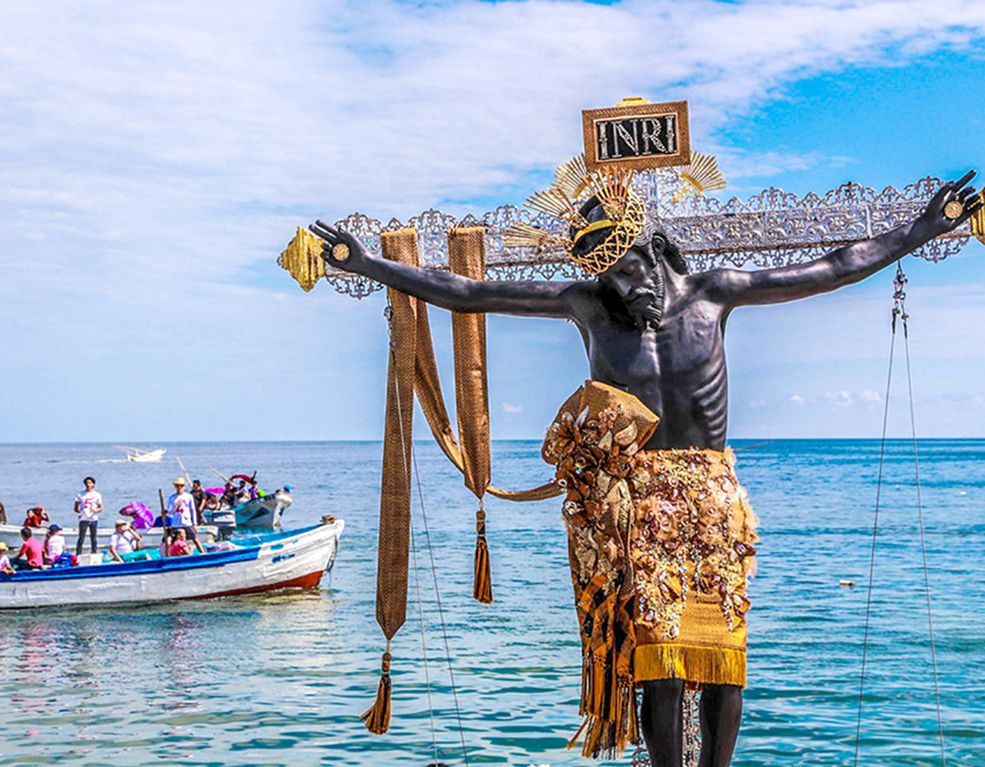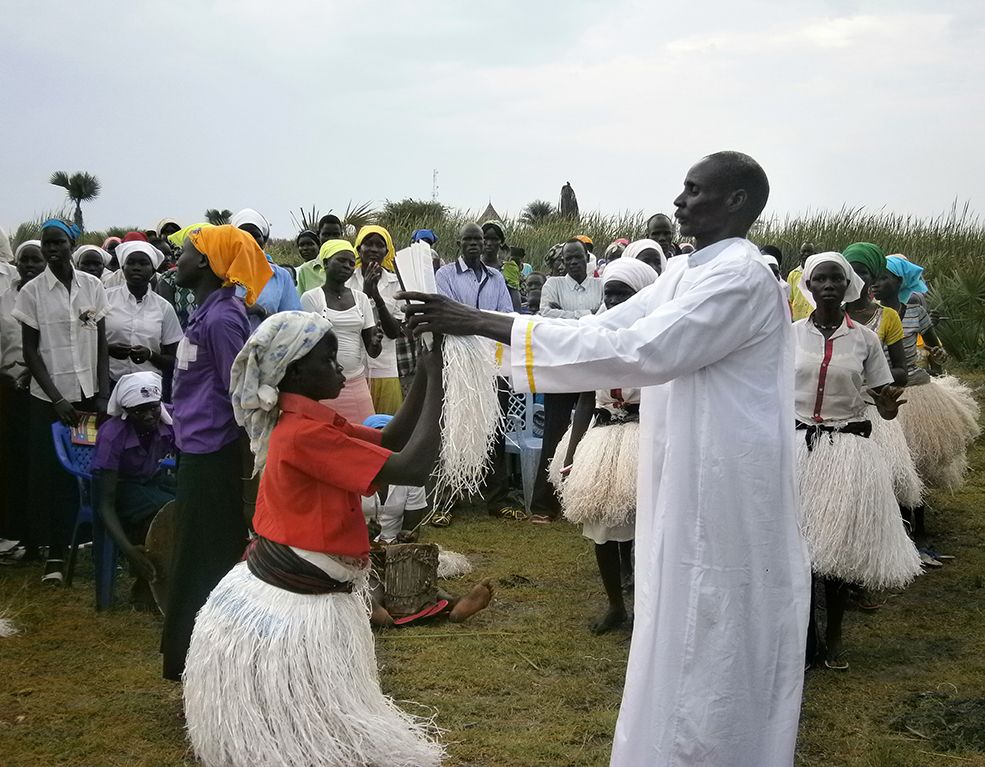A few days back, a friend of mine sent to me a very interesting book: The Schism: Catholics without Pope. The author, Riccardo Chiaberge, introduces 14 very interesting and dynamic persons, people oriented and dedicated to link new aspects of life with the Gospel. I would say that they all are charismatic persons, in whose performance the Holy Spirit is present and active. They find themselves in frontier conditions, for example: a sister in Africa facing AIDS; a doctor in a hospital for infertile couples dealing with issues of fertilization in vitro; a medical researcher dealing with stem cells; a theologian striving to reformulate the theology of creation within the context of modern cosmology, and so forth. The common bottom line is that all of them are operating in frontier situations. All of them are motivated by a real passion and compassion for people vexed by problems without solutions. What they are doing might not be hundred per cent in line with the general statement of the hierarchical Church but, all in all, I would say they are real artisans of the Kingdom of God. They enjoy sound intentions and the will to be in communion with the Church, though their initiatives are not as yet fully in line with the general statements of the magisterium. In the above mentioned artisans of the Kingdom, a new child is conceived. The hierarchy cannot prepare the ‘trouser’ or the ‘skirt’ before the new creature is born. At the origin of conception, there is the Holy Spirit, not the hierarchy. The hierarchy, later on, will welcome to the community the newly-born child. A certain amount of tension between the charismatic and the institutional elements in the Church is inevitable.
The Holy Spirit is the first agent of evangelization (Redemptoris Missio, 21) and precedes the full establishment of the Church; He sets the process of personal conversion and of the coming of the Kingdom into motion. The full belonging to the Church will come later. The Church cannot control the dynamism of the Holy Spirit, but only recognizes His presence and action with the passage of time through a challenging journey of discernment. Therefore, Chiaberge’s labelling the 14 protagonists as schismatic faithful is by all means inappropriate. They are not separated from the Church; they are not rebels. They are simply ahead of the formal approval of the Church which cannot but come after years of testing and experiences.
Present in all cultures
The Spirit has been present in the world from the beginning of creation. He is present in cultures, peoples, religions even before the Gospel is proclaimed in that given environment. The Spirit is manifested in the traces of truth, wisdom, charity, solidarity, patience, piety, faith and hope which are present in every culture and religion. The philosopher Saint Justin was well conversant with the Greek, Roman and Hebrew wisdom. He coined the expression: Semina Verbi (seeds of the Word) to convey his conviction that the Word and the Spirit of God could be detected in the world outside the boundaries of Christianity. On the same line, but with broader elaboration, was Clement of Alexandria in the three famous works: the Protrepticus (“Exhortation to the Greeks”), the Paedagogus (“Instructor”) and the Stromata (“Miscellanies”). Based on the conviction of the presence of the Holy Spirit in the world, he detects profound links between Christian faith and of non-Christian philosophy. In Christ and in the Pentecost, the fullness of the presence and action of the Holy Spirit is achieved.
Gaudium et Spes states: “The Church also knows that man is constantly worked upon by God’s Spirit and, hence, can never be altogether indifferent to the problems of religion. The experience of past ages proves this, as do numerous indications in our own times. For man will always yearn to know, at least in an obscure way, what is the meaning of his life, of his activity, of his death. The very presence of the Church recalls these problems to his mind. But only God, who created man in His own image and ransomed him from sin, provides the most adequate answer to the questions, and this He does through what He has revealed in Christ, His Son, who became Man. Whoever follows after Christ, the Perfect Man, becomes himself more of a man. For, by His Incarnation, the Father’s Word assumed and sanctified, through His Cross and Resurrection, the whole of man, body and soul, and, through that totality, the whole of nature was created by God for man’s use” (GS, 41).
For this very reason, in all conversions, there is an element of continuity which affirms the presence of the Holy Spirit as forerunner of the encounter with Christ, an element of novelty and discontinuity since, in Christ, the fullness of faith, piety, charity, hope solidarity is achieved. The possibility of real Inculturation lies in the interplay between continuity and discount, tradition and novelty.
The process of inculturation
The concept of inculturation supposes a mutual interaction of the Gospel and culture, an interaction that leads towards a new creation. This new creation is made possible by and is the fruit of the action of the Holy Spirit who calls each people and each culture to its own fresh and creative response to the Gospel. All creativity, whether in the Church or in the world, that leads toward the realization of the process of inculturation has its beginning in the Holy Spirit. The presence and the action of the Spirit in and for the process of inculturation manifest itself differently according to this double localization: in the Church and in the world. The Holy Spirit is the force that unites the ecclesial community. He is the inspiring strength that moves men and women, touched by the Word of God, to form a community, to become a group of disciples of the Lord. The Spirit urges everyone to express their faith through means and symbols proper to their mentality, with new forms of leadership and a sense of mission.
The action of the Spirit is not limited only to the moment of creation of an ecclesial community. The continuous encounter between the Gospel and cultures in the process of inculturation requires a local Church to carry out a prudent discernment of the values involved in this process, of the signs of the times, of the human attitudes in the Church and outside of it, of realities that are of benefit to the Church or not. The gift of discernment is present in the whole community of believers when they live their faith as an ecclesial community. The presence of the Holy Spirit in a community, together with the living Word of the Risen Lord, makes the community the principal agent of theologizing, fully realizing the sense of the old conviction about sensus fidei fidelium (the faithful’s sense of faith). Sensus fidei fidelium is an important manifestation of the Spirit which leads toward a constructive discernment, but only when the faithful are united with their pastors. The pastors, whether bishops or other ordained ministers, are called to interpret the activity of the Spirit in the world and in the Church, to help the members of their ecclesial communities to understand the challenges of the present time and to listen attentively to the voice of the same Spirit, active in the faithful.
The attitude of listening and being with the community is very much needed in a Church understood as a communion where all members are called to participation and co-responsibility. It does not mean that the final responsibility for a decision is not in the hands of the pastors, especially the bishops; but it does mean that these decisions are the fruits of common concerns and deliberations and are not an arbitrary exercise of power on the part of ordained ministers. These manifestations of the Spirit in the world, on the one hand, and the action of the same Spirit in local Churches on the other, bring about the realization of the true Catholicity of the Church, the integration of noble elements of the world in a new synthesis of the Gospel leading towards a new creation in a local Church.
Special presence in artists
Art is an essential component of inculturation. Without painting, dance, singing, celebration, music, poetry, architecture, theatre, colors, dressing, inculturation would remain a vague and abstract word. In other words, it would be inappropriate to elaborate about inculturation without a specific reference to artistic creation and without including artists, especially the Christian ones, as a kind of unique ministers of inculturation under the specific influence of the Holy Spirit; that is: artists are anointed in their own way. The world, the cosmos has a sacramental dimension that reveals God’s glory, wisdom, power, as the wisdom literature of the Bible often highlights. Obviously, a contemplative attitude is needed to detect God’s glory in creation. A technological and consumerist approach only would be totally insufficient. Artist is the one who goes beyond market and money, a Christian artist is a privileged conveyor of the mystery present in the world.
For this very reason, art plays an important role in the history of the Church. In Europe, for centuries, masterpieces of art were linked to religious themes. It might be very meaningful to quote the message of the Vatican II to artists: “We now address you, artists, who are taken up with beauty and work for it: poets and literary men, painters, sculptors, architects, musicians, men devoted to the theater and the cinema. To all of you, the Church of the council declares to you, through our voice: if you are friends of genuine art, you are our friends. The Church has long since joined in alliance with you. You have built and adorned her temples, celebrated her dogmas, enriched her liturgy. You have aided her in translating her divine message in the language of forms and figures, making the invisible world palpable. Today, as yesterday, the Church needs you and turns to you. She tells you, through our voice: Do not allow an alliance, as fruitful as this, to be broken. Do not refuse to put your talents at the service of divine truth. Do not close your mind to the breath of the Holy Spirit. This world in which we live needs beauty in order not to sink into despair. It is beauty, like truth, which brings joy to the heart of man and is that precious fruit which resists the year and tear of time, which unites generations and makes them share things in admiration. And all of this is through your hands. May these hands be pure and disinterested. Remember that you are the guardians of beauty in the world. May that suffice to free you from tastes which are passing and have no genuine value, to free you from the search after strange or unbecoming expressions. Be always and everywhere worthy of your ideals and you will be worthy of the Church which, by our voice, addresses to you today her message of friendship, salvation, grace and benediction.” For this very reason, the last popes are investing time, energy and money to revive the link between the Church and the world of art. It is far more than a strategic move; it is a clear manifestation of the faith in the presence and action of the Holy Spirit.
Towards a new social order
At the beginning of the new millennium, we witness a rhythm of change and transformation at a speed never experienced before. This is a novelty which brings about unprecedented difficulties to the Churches and to all religions in general. Religious sensitivity and inclinations are more at ease with continuity and traditions than with discontinuity and modernity. The Bible – which is at least 2000 years old, with episodes and mentality rooted in the pastoralist and agriculture world – might find challenging to be relevant for our world under the sway of technology. The task of relevance, insertion and actualization of the Word of God is up to the Holy Spirit first and then to religious and social ministers.
It is the challenge of applying the Word of God in today’s context, of reading the signs of times, of being docile to the Holy Spirit, who renews “the face of the earth,” of accepting history with its evolution as the will of God, the Creator who expects of us readiness and collaboration towards “new heaven and new earth.” In God’s Trinitarian mystery, the Holy Spirit seems to be the Person more directly involved with change, renewal, discontinuity, transformation. Realities often associated with conversion in the Bible. Moreover, areas of public life such as economy, politics, public administration, trade, international relationship, were not found in traditional theology, catechesis and the celebration of the sacraments. A new trend started over the 19th century since the first social encyclical letter by Leo XIII Rerum Novarum in 1891. The occasion was the industrial revolution which brought about the so-called social question, which is the exploitation of the workers by the capitalists. Then social issues entered massively into the magisterium of the Church at the service of the coming of the Kingdom of God which implies values such as justice, reconciliation, human rights, equitable distribution of natural resources, respect for the dignity of the classes more at risk, such as children and women. Nowadays, there is a comprehensive revision of the relationship, at all levels, between the enriched North and the impoverished South. A new social order, as manifestation of the penetration in the world of the Resurrection of Christ and manifestation of a New Pentecost is needed as a synod of bishops, stated: “Hope in the coming Kingdom is already beginning to take root in the hearts of people. The radical transformation of the world in the Paschal Mystery of the Lord gives full meaning to the efforts of people and, in particular, of the young, to lessen injustice, violence and hatred and to advance all together in justice, freedom, kinship and love” (Justice in the World – JW, 76)
The longings and initiatives of the poor
It was October, 1971, when the third Synod of Bishops assembled in Rome to reflect and discern on the theme of Justice in the World. There were outstanding bishops, who in the seventies, were featured highly in their untiring promotion of human rights against military dictators. Just a few names: Hélder Câmara from Brazil, Henrique Da Silva from Chile, Emanuel Nsubuga from Uganda and Denis Hurley from the apartheid-stricken South Africa. The Synod, with bold theology and contemplative discernment, detected the Holy Spirit’s presence in the movements of the poor towards a more dignified standard of human life and in the claim of recognition of their human rights.
The Hoy Spirit is proclaimed as present and active in popular movements and, particularly, in the overcoming of attitudes of fatalism, passivity and apathy vis-à-vis injustice and exploitation. “In associations of people and among peoples themselves, there is arising a new awareness which shakes them out of any fatalistic resignation and which spurs them on to liberate themselves and to be responsible for their own destiny. Movements among people are seen which express hope for a better world and a will to change whatever has become intolerable. Listening to the cry of those who suffer violence and are oppressed by unjust systems and structures, and hearing the appeal of a world that, by its perversity, contradicts the plan of its Creator, we have shared our awareness of the Church’s vocation to be present in the heart of the world by proclaiming the Good News to the poor, freedom to the oppressed, and joy to the afflicted. The hopes and forces which are moving the world in its very foundations are not foreign to the dynamism of the Gospel which, through the power of the Holy Spirit, frees people from personal sin and from its consequences in social life” (JW, 4-5).
“The power of the Spirit, who raised Christ from the dead, is continuously at work in the world. Through the generous sons and daughters of the Church, likewise, the People of God is present in the midst of the poor and of those who suffer oppression and persecution; it lives in its own flesh and its own heart, the Passion of Christ, and bears witness to His Resurrection. The entire creation has been groaning till now in an act of giving birth, as it waits for the glory of the children of God to be revealed (cf. Rom 8:22). Let Christians, therefore, be convinced that they will yet find the fruits of their own nature and effort cleansed of all impurities in the new Earth which God is now preparing for them, and in which there will be the kingdom of justice and love, a kingdom which will be fully perfected when the Lord Himself will come” (JW, 74-75).
Social transformation as evangelization
The conclusion of the same Synod was, therefore: “Action on behalf of justice and participation in the transformation of the world fully appear to us as a constitutive dimension of the preaching of the Gospel, or, in other words, of the Church’s mission for the redemption of the human race and its liberation from every oppressive situation” (JW, 6). Social ministry is not a luxury or a commitment just for moments of emergency caused by natural catastrophes, such as floods or droughts, or by social catastrophes, such as wars or ethnic violence. It is a permanent and constitutive dimension of the Church’s pastoral work at all levels: basic ecclesial communities, parish, dioceses, and communion of dioceses of a country or continent, and the whole universal Church. Otherwise, the Church would fail in its duty of being “universal sacrament of salvation,” salvation not only at a personal level, but also at a socio-environmental and ecological levels. The apostolicity, which is one of the essential notes of the Church, includes a permanent and strong social commitment.
Paul VI, in the epoch-making Evangelii Nuntiandi of 1975, was even more explicit: “Between evangelization and human advancement – development and liberation – there are, in fact, profound links. These include links of an anthropological order, because the man who is to be evangelized is not an abstract being but is subject to social and economic questions. They also include links in the theological order, since one cannot dissociate the plan of creation from the plan of redemption. The latter plan touches the very concrete situations of injustice to be combated and of justice to be restored. They include links of the eminently evangelical order, which is that of charity: how, in fact, can one proclaim the new commandment without promoting, in justice and in peace, the true, authentic advancement of man? We ourselves have taken care to point this out, by recalling that it is impossible to accept “that, in evangelization, one could or should ignore the importance of the problems so much discussed today, concerning justice, liberation, development and peace in the world. This would be to forget the lesson which comes to us from the gospel concerning love of our neighbor who is suffering and in need” (EN, 31).
Social apostolate unfolds in a broad variety of social ministries spearheading concrete initiatives according to the challenges of the Christian communities, of the civil society and of the State. Social ministry is linked as well to the professions and trades of the laity and to charismas of the different religious families such as youth, children, sick, destitute and so forth. Only in this way the Kingdom is built, coming from above as a gift as we pray for in the Our Father and in the Eucharistic celebration, and coming from below, as our task through our daily, serious and competent work carried out according to our duties and professions.
Local protagonists in social ministry
Since social ministry is a response to concrete life situations of the poor, it can happen only in local Christian communities where real people live and work. Therefore, the local Churches are called upon to take the lead in social ministry. Nobody can forget the social impact of the Latin American Churches through Medellin (1968) and Puebla (1979) The first African Synod of 1994 provided the following directions: “If the proclamation of justice and peace is an integral part of the task of evangelization, it follows that the promotion of these values should also be a part of the pastoral program of each Christian community. That is why I urge that all pastoral agents be adequately trained for this apostolate. “The formation of clergy, religious and laity, imparted in the areas of their apostolate, should lay emphasis on the social teaching of the Church. Each person, according to his state of life, should be specially trained to know his rights and duties, the meaning of service for the common good, honest management of public goods and the proper manner of participating in political life, in order to be able to act in a credible manner in the face of social injustices. As a body organized within the community and the nation, the Church has both the right and the duty to participate fully in building a just and peaceful society with all the means at her disposal” (Ecclesia in Africa, 107).
Thus, local Churches, by responding to the socio-environmental situations, are developing a local social magisterium according to the socio-environmental context they are located in. Publishing houses, such as Orbis Books of the Maryknoll Missionaries, the Centre of Concern of the American Jesuits in New York, EMI (Bologna) of the Missionaries Institutes present in Italy, Claretian Publishing House in the Philippines, the Pauline Publications Africa in Kenya, publish the most meaningful interventions. The same must be said about the Protestant world through the WCC, Geneva publishing house.
A call for new styles of living
Social apostolate, as any other ministry, demands witness on the side of those who have committed themselves. Particularly, it demands a style and model of life based on simplicity, sobriety, and solidarity and sharing to counteract the consumerist model of the globalized world. Again, the African Synod: “The Church in Africa, as the family of God, must bear witness to Christ also by promoting justice and peace in the continent and throughout the world. The Lord says: “Blessed are the peacemakers, for they shall be called sons of God. Blessed are those who are persecuted for righteousness’ sake, for theirs is the Kingdom of Heaven” (Mt 5:9-10). The Church’s witness must be accompanied by a firm commitment to justice and solidarity by each member of God’s people. This is especially important for the lay faithful who hold public office, because such witness demands an abiding spiritual attitude and a way of life consistent with the Christian faith” (Church in Africa, 105). The social teaching of the Church urges Christian communities to complement the individual amelioration of personal behavior with social conversion. For this very reason, the season of Lent – the time of conversion, par excellence – calls upon Christians to rediscover the social importance of fasting and abstinence in order to support a Lenten campaign against one social evil or another.














